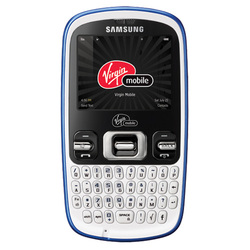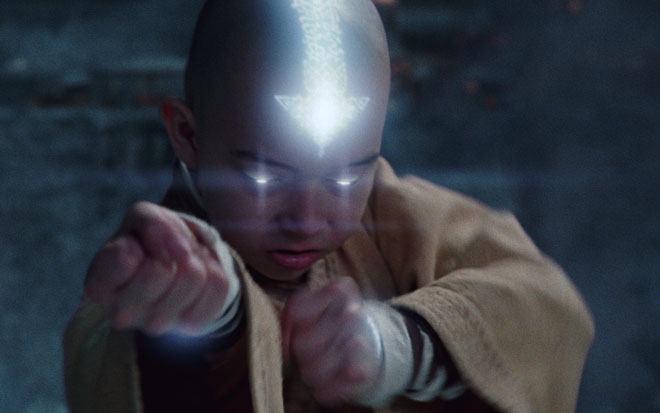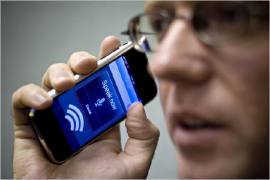In a bit of a departure today, I thought I’d write a bit about one of my favourite topics: cellphones. As every wireless customer in Canada knows, we’ve been shelling out pretty nicely here for years to our big three wireless carriers, Bell, Rogers and Telus. Things are looking up though, with several smaller new players - such as Wind, Mobilicity and Public Mobile - shaking things up and helping prices come down. The situation has also been helped by Bell and Telus recently moving to the same network technology as Rogers, which means that in theory at least, customers will be able to use their phones on all three networks, which will spur competition. Apple’s iPhone is a good example - all three carriers offer the hot device, and deals are starting to emerge to entice customers to a particular service provider.
 The other day, though, Virgin Mobile put out a press release introducing its new “Super Tab,” which is supposedly a way to get cool phones without signing a long-term contract or paying the full price of the device up front. It’s essentially a knock-off of Koodo’s Tab. Virgin and Koodo, if you didn’t know, are respectively owned by Bell and Telus.
The other day, though, Virgin Mobile put out a press release introducing its new “Super Tab,” which is supposedly a way to get cool phones without signing a long-term contract or paying the full price of the device up front. It’s essentially a knock-off of Koodo’s Tab. Virgin and Koodo, if you didn’t know, are respectively owned by Bell and Telus.
Here’s how Virgin’s Super Tab works: pick a phone, then bank up to $500 of the cost on the Super Tab, and pay the rest - if any - up front. Then, 10% of your monthly bill will be deducted from the amount you owe on the phone. Ultimately, you’ll have the phone paid off, or so the idea goes. If you cancel your service at any point, you have to pay off whatever is left on your Super Tab. Koodo’s Tab is similar, except the amount you can start off owing is set at a maximum of $150.
The whole tab concept, while marketed as beneficial to consumers, is unfortunately another attempt to snow customers because they can actually cost you more money than if you bought the phone up front, or if you signed on to a long-term contract. Take Virgin’s highest-end phone as an example: the iPhone 4 32 GB, which costs $769 up front. If you bought this phone, you’d have to pay $269 up front and bank $500 on your Super Tab. If your monthly bill was, say $50, you’d earn $5 a month - which means your new iPhone would be paid off in about, oh, eight years and three months. If you’re a power user and your monthly bill was $100, you’d have it paid off in half that time - just four years, or one year longer than a three-year contract (which, incidentally, is the longest contract you’ll find anywhere in the world).
Let’s do some math. If you were indeed that $100 power user and cancelled your service after three years you’d still owe $140 on that phone which, when you add the initial $269 up-front payment, would bring the total amount you shelled out to $409 (the $50 user would still owe $320, for a total cost of $589). But if you bought the same phone from parent Bell on a three-year contract today, you’d pay $159, which means if you have no intention of canceling your service over the next three years, there’s absolutely no reason to go with the Super Tab. In real terms, it would cost the $50-a-month user $430 more to use the Super Tab, and the $100-a-month customer $250 more.
But what if you cancelled your service after one year? On the Virgin Super Tab, the $100 customer would still owe $380, bringing the total cost to $649, while the $50 customer would still owe $440 for a total cost of $709. How much would the Bell customer owe? Who knows? The maximum early termination fee used to be $400, which would bring the total iPhone cost after one year to $569 - not a bad deal given the $769 price tag - but that doesn’t seem to be the case any more. Any mention of wireless cancellation charges have recently vanished from Bell’s website which, if you care about such things, is a violation of the wireless industry’s self-adopted code of conduct. What you might owe Bell after canceling your iPhone one year into a contract is anybody’s guess at this point. (Telus is more transparent with its early termination fees - canceling an iPhone after one year would run you $480.)
Speaking of Telus… currently, the most expensive phone offered through Koodo is the BlackBerry Curve 8530 for $250. Let’s bank $150 on the Tab. Again, a $50-a-month customer would have that paid off in two-and-a-half years while a $100 customer would take just over a year. That’s not nearly as bad as the Virgin example above, but it’s clear that the more expensive the phone, the worse this whole tab idea looks.
Again, if you want a high-end smartphone, you’re better off signing a contract or, better yet, buying the thing outright and unlocking it. That won’t necessarily net you any service deals yet, but that is likely to change if Wind, Mobilicity and the rest start to have any real impact.
 Being a film buff, I see a lot of movies. It was with great interest, then, that I sat in a theater recently and watched a trailer for a new horror thriller that takes place largely in an elevator. An interesting concept, I thought, as did most of the audience… until a set of words popped up onto the screen that inspired howls of laughter: “From the mind of M. Night Shyamalan.”
Being a film buff, I see a lot of movies. It was with great interest, then, that I sat in a theater recently and watched a trailer for a new horror thriller that takes place largely in an elevator. An interesting concept, I thought, as did most of the audience… until a set of words popped up onto the screen that inspired howls of laughter: “From the mind of M. Night Shyamalan.”




Recent Comments